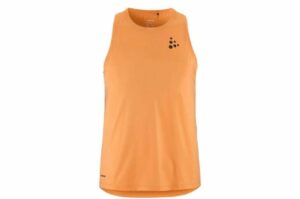Gaining weight while training for a marathon?
Why some runners gain weight when they increase their training and mileage
Arguably, weight loss is the most common reason why many of us started running in our 30s, 40s, or later. Cardio is such an easy way to burn calories and shed excessive pounds. I dropped 20 lbs when I started running seriously, and that was before I signed up for a marathon.
The common logic is – once the marathon training starts, the extra weight should just melt away. The reality, alas, is somewhat different: many runners gain weight during a marathon training. How is that possible, you wonder?
With increased mileage, there’s an increase in the amount of calories spent, which in turn increases our consumption of highly caloric foods and drinks we need to re-energize. And there lies the problem – we tend to overcompensate.
Remember the rule: to maintain the same weight, the amount of calories in must equal calories out. Although you are burning increased amount of calories when training for a marathon, it still doesn’t give you a carte blanche to indulge as much as you want. For example, running at moderate intensity will burn 80-100 cal per mile (or 50-65 cal/km). A beer, on average, packs 150-180 cal (you can check your favorite brand’s caloric value here). That means for each beer you drink, you’d need to run 2 miles, or 3k. Run less, or drink more and your weight will go up. Not to mention that beer-belly!
If you plan to lose weight, your intake has to be less than the calories burned.
Runners tend to eat healthy, although carbo-loading can easily turn into carbo-overloading. Carbohydrates are the body’s most efficient form of fuel, but they have to be used immediately after they are consumed. Unused carbohydrates are stored in the form of glycogen, and in order to break down glycogen for energy, your body needs water, so you’re storing extra water too, which will inevitably show on scale.
The culprit for packing pounds could also be sugary energy drinks. They are great to replace electrolytes lost during long runs, but you don’t need energy drinks unless your run is over an hour long, or you’re running in extreme heat.
While maintaining weight during rigorous training requires balanced nutrition, you don’t need to count the calories for every meal. Here’s what to do:
Eat regular, balanced meals throughout the day. Make sure you eat three main meals with carbohydrates, protein and fat, and two to three snacks. Beware – almonds and nuts are great for snacking, but also high in vegetable oil and therefore in calories, so a fistful a day (about 20-30 almonds) should be enough.
Refuel 30-45 minutes after workout for maximum recovery results. Your muscles need carbs and protein to repair, so a protein milkshake, oatmeal or chocolate milk are great refueling choices.
For hydration during recovery, the best choice is water. Refrain from soda or energy drinks. Unless refueling right after workout, leave chocolate milk out as well.
Finally, marathon training increases your body’s demand for energy and may not be the optimal situation for weight loss. If you choose to use it to slim down, exercise extra caution with your nutritional choices. Not enough nutrients needed for recovery may weaken your body and lead to injuries.

